What to Do When Your Puppy Cries At Night In His Crate? (First Night)
The crate can be a comforting and secure place for a puppy, but it can also become a source of distress if your pup cries when left in it.
While you may want to let your puppy out of the crate at night when he cries, that’s not always the best way to handle the problem.
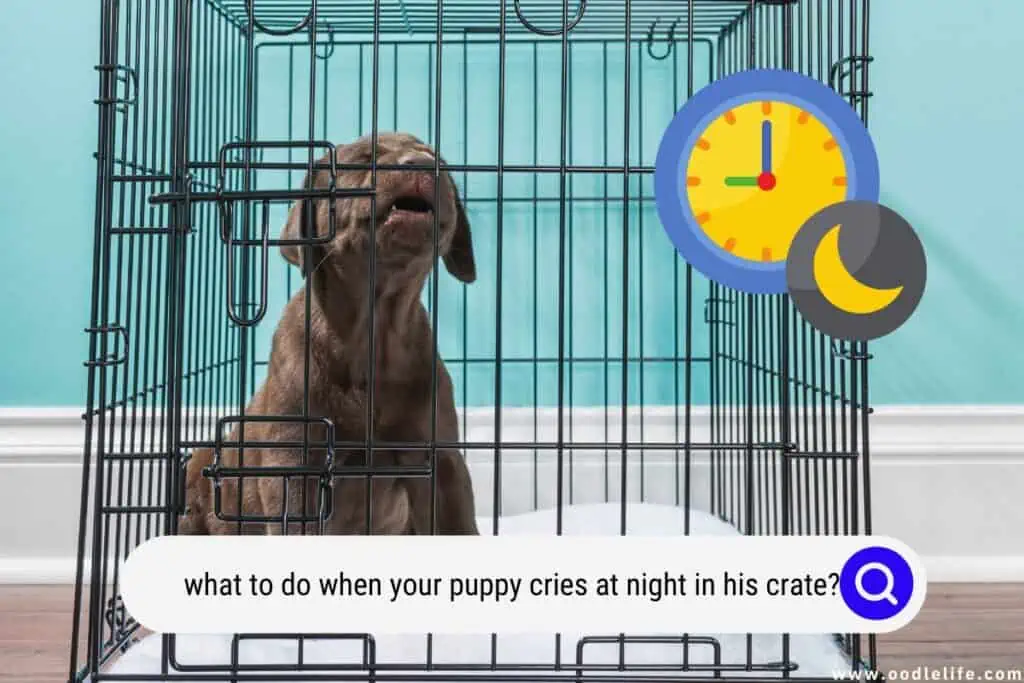
Here are some tips to follow if your puppy is crying in the crate the first night, how to take care of him, and why he might be crying.
Reasons Your Puppy Is Crying in Its Crate
With a new puppy, it can be difficult for an owner to determine why the puppy is crying in its crate the first night. While every dog is different, and there are a variety of possible causes, here are some of the most common reasons:
Separation Anxiety
Separation anxiety is one of the primary reasons puppies cry in their crate at night. Without its owner nearby, a puppy may become nervous or scared and express this distress through crying. Unfortunately, this type of anxiety is common in puppies.
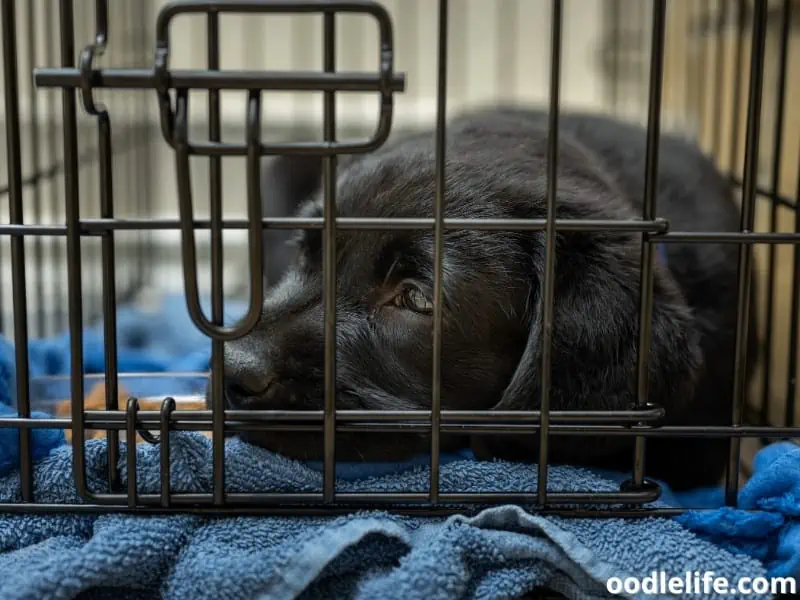
Boredom
Another possible reason your pup might be crying in its crate is boredom. When left alone for too long, puppies can become bored and vocalize this sentiment by crying. So not only can your puppy lack stimulation, but the crate can also feel like a jail cell.
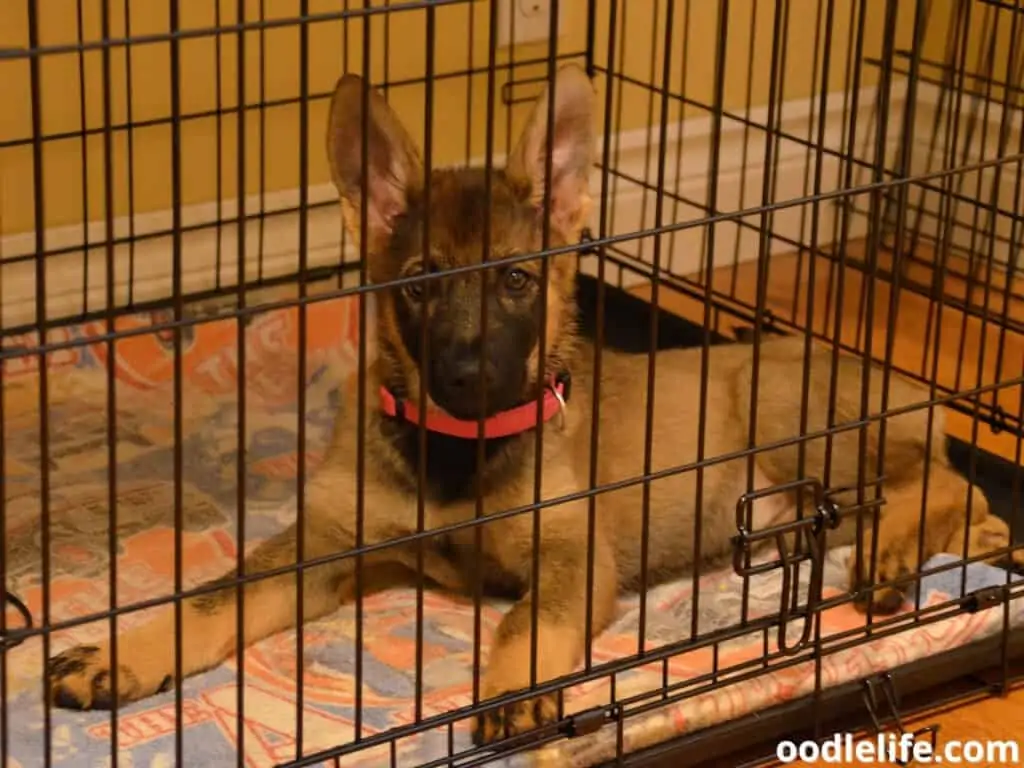
Loneliness
In addition to separation anxiety, loneliness can significantly cause crying in puppies. Puppyhood is the perfect time for your pup to socialize and be around people, so it’s no surprise that being left alone at night can cause distress.
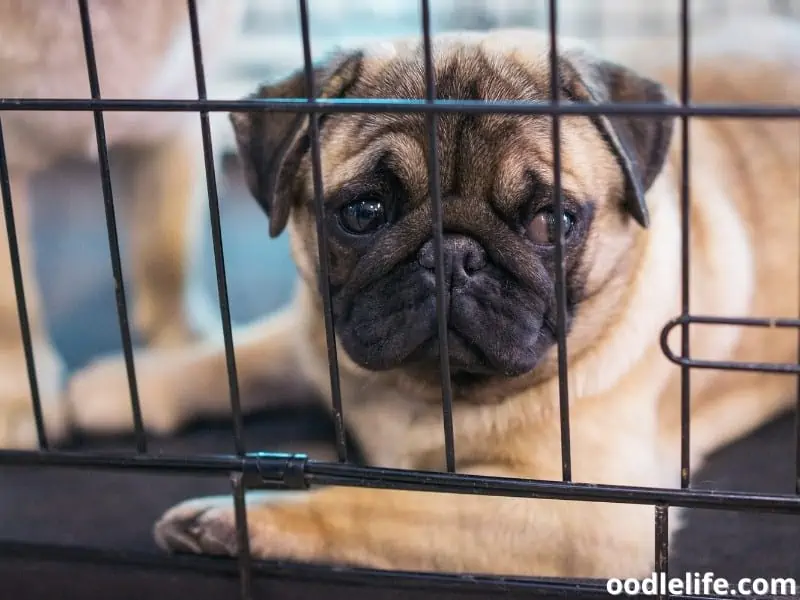
Taking Care of Your Puppy When It Cries at Night
Now that you know why your puppy might be crying in its crate the first night, here are some tips for taking care of your pup:
Create a Comfortable Space
The first step is ensuring that the crate is comfortable and inviting for your pup. Ensure the crate is large enough for your puppy to move around in, and provide plenty of soft bedding and a few toys to keep them occupied.

You can create a den-like environment, as puppies instinctively enjoy small, enclosed spaces. The best way to do this is to use a crate cover and place the crate in a corner.
Exercise During the Day
It’s a good idea to provide plenty of exercise for your puppy during the day so it will be more likely to sleep through the night. For example, taking your Boston Terrier pup on walks, playing fetch in the yard, and teaching them tricks can tire them out and make nighttime more restful.
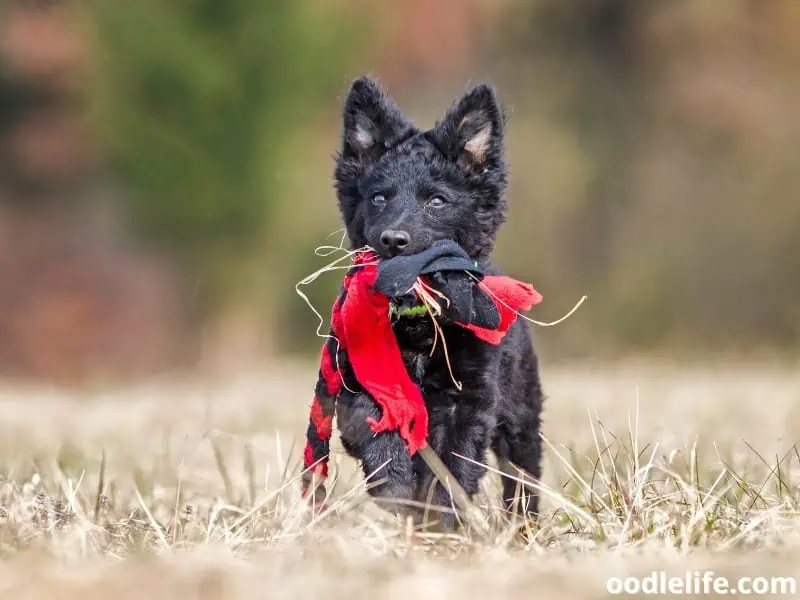
In addition, a stimulating nighttime routine can help your pup relax before bedtime. One great way to do this is to read a story or play calming music.
Give Treats and Praise
Reward your pup for not crying in its crate with treats and positive reinforcement. The treats reinforce the idea that good behavior is rewarded and will help your puppy learn to stay calm in their crate.
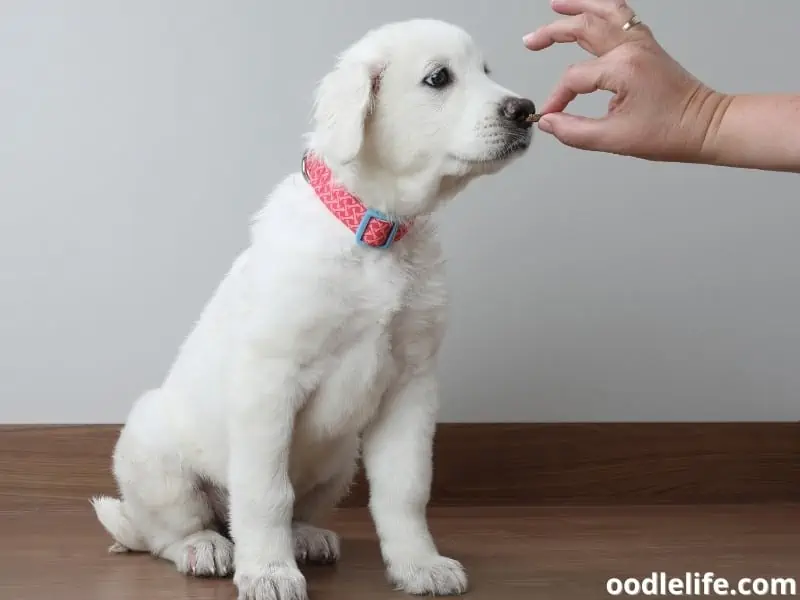
One thing to be careful of is not letting your pup out of the crate simply because it is crying, as this will only reinforce the behavior and make it more likely for them to continue crying in the future.
Adjust Feeding Times
If your pup is crying in its crate due to hunger, adjust the feeding times accordingly. For example, moving dinner or bedtime snacks to earlier in the evening might be helpful as the later mealtime will ensure that your pup is not too hungry at night, which could lead to them crying for food.

In addition, try to avoid feeding your puppy too close to bedtime, as this could cause indigestion or other stomach issues during the night.
Develop a Routine
Establishing a consistent routine is vital when it comes to taking care of puppies that cry at night. Feeding your pup at the same time each night and providing a potty break shortly before bed can help them understand when it’s time to sleep. Most dog breeds respond well to routine as it helps them feel safe and secure.

Stay Calm and Consistent
Finally, staying calm and consistent when dealing with your pup’s crying is essential. Try to remain patient and understand that it is a natural behavior for puppies, but be firm and consistent in your response.

Don’t let your pup out of the crate just because it is crying; this will only reinforce the behavior.
When you remain consistent, your pup will learn that crying does not get him out of the crate, and he will be more likely to stay in the crate quietly through the night.
How To Improve Your Puppy’s Crate Experience?
In addition to the tips mentioned above, you can do a few other things to make your pup’s crate experience more enjoyable. Before bed, spend some time playing with your pup in the crate and giving them plenty of attention.
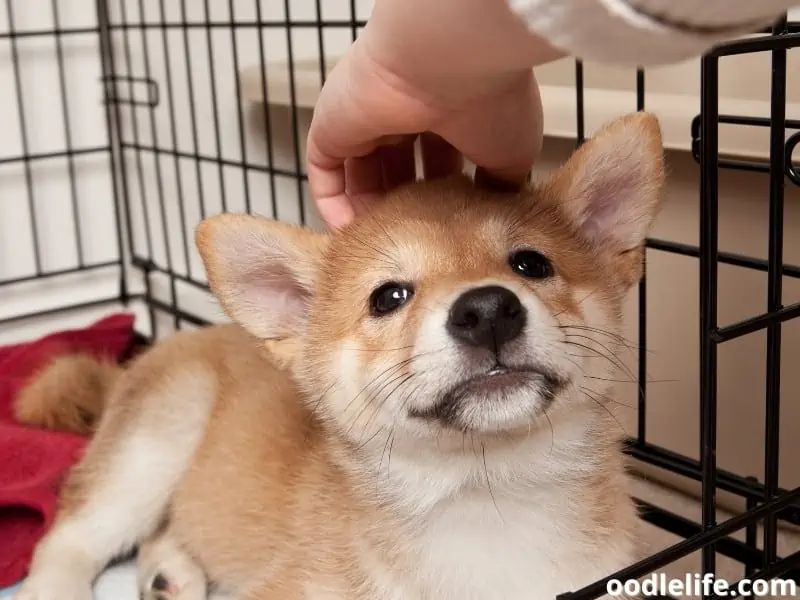
Doing this will help create a positive association with their crate and make them more likely to stay in it during the night. You can also try leaving an item of clothing with your scent in the crate, making them feel more secure.
What Not To Do When Your Puppy Cries in Its Crate?
Now that you know some tips for taking care of your pup when it cries in its crate, here are some things to avoid. Avoiding these behaviors ensures that your pup’s nighttime cries don’t become a habit.
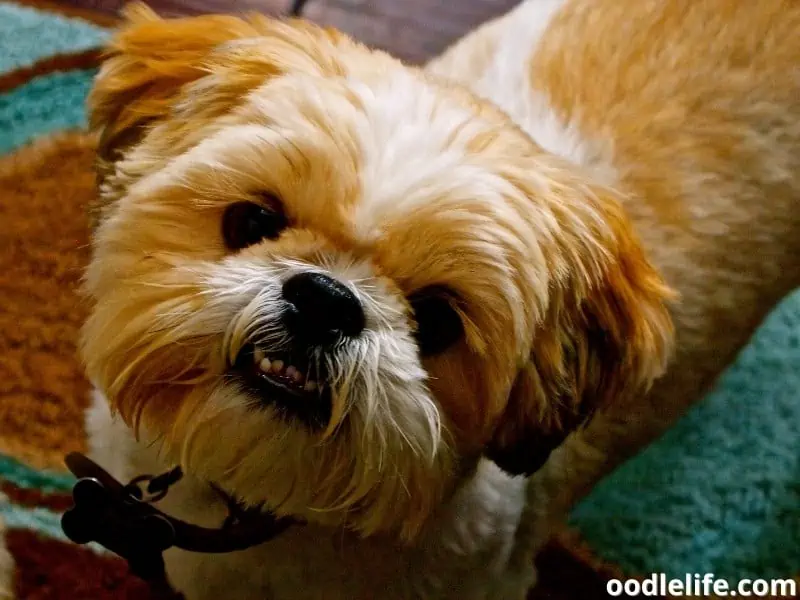
First, never punish or scold your pup for crying in its crate, as this can cause your pup to become fearful and may lead to further problems. Additionally, if you let your pup out of the crate when crying, then ignore it for a few minutes afterward, this will help him learn that the crying is not rewarded with attention when let out of the crate.
Finally, never reward your pup for crying in its crate by giving it treats or extra attention. Doing this will only reinforce the idea that crying is a way to get what they want, making the behavior more likely.
Second, don’t over-exercise your pup before bedtime. Exercise can help relax your puppy, but too much of it in the evening can make them over-excited and lead to restlessness. Instead, try taking your puppy on a short walk or playing with them for just a few minutes before settling for the night.
Finally, ensure you don’t leave your pup in its crate for too long during the night. Puppies need to be able to move around, so try not to keep them crated for more than a few hours at a time. If they need to stay in their crate for an extended period, make sure you take them out for breaks now and then.
Conclusion
Taking care of a puppy that cries at night in its crate can be difficult, but with patience and consistency, you can help your pup learn to stay quiet and calm. Establishing a routine, staying calm and consistent, improving your puppy’s crate experience, and avoiding the wrong behaviors can all help make the process much smoother.
With hard work and dedication, you and your dog can get a good night’s rest and have an even better relationship.